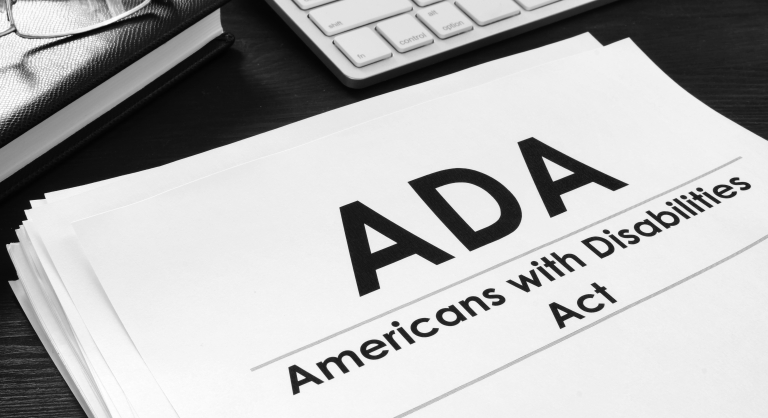Client Alert: Bush 1 and a Domestic Legacy: The Americans with Disabilities Act
The recent passing of George H. W. Bush is a fitting moment to reflect upon one of his most enduring legacies in the sphere of domestic policy: the Americans with Disabilities Act, which he signed into law on July 26, 1990. While enactment of the ADA was the result of true bipartisan efforts on the part of many activists, lobbyists, politicians, and staffers, the genuine support of President Bush, Sr., and his Republican administration was absolutely critical to its ultimate passage and implementation.
Over the course of nearly three decades, the ADA (as amended, 42 U.S.C. §§ 12101 et seq.) and its implementing regulations have enabled significant social change by prohibiting discrimination against individuals with disabilities in all areas of public life, including public accommodations (e.g., transportation, hotels, shops, theaters, and restaurants) and the workplace. In the workplace, the ADA prohibits employers from discriminating against qualified individuals with disabilities both in hiring and on the job. The ADA also requires private businesses with more than 15 employees, state and local governments, employment agencies, and labor unions to make “reasonable accommodations” for their employees (barring “undue hardship”). Under the ADA, an individual is considered to have a “disability” if s/he has a physical or mental impairment that substantially limits a major life activity, has a record of such an impairment, or is regarded as having such an impairment.
In 2008, following two Supreme Court decisions that narrowed this definition of “disability” in practice, Congress enacted, and the second President Bush signed, the ADA Amendments Act (“ADAAA”) to make it easier for individuals to be covered under the ADA. For example, the ADAAA clarified that an impairment need not be “severe or significant” to be considered a disability under the ADA/ADAAA.
In his public remarks upon signing the ADA, President Bush, Sr., included an important message for the American business community, as salient today as it was in 1990:
You have in your hands the key to the success of this act, for you can unlock a splendid resource of untapped human potential that, when freed, will enrich us all….You’ve called for new sources of workers. Well, many of our fellow citizens with disabilities are unemployed. They want to work, and they can work, and this is a tremendous pool of people…who will bring to jobs diversity, loyalty, proven low turnover rate, and only one request: the chance to prove themselves.
According to recent statistics, the number of employed individuals with disabilities increased slightly between November of 2017 and November of 2018. However, as noted by John O’Neill, director of employment and disability research at Kessler Foundation, “there is still a long way to go toward closing the gap between people with and without disabilities.” Employers can help to close this gap by, in part, reviewing their policies and practices to ensure that they are ADA compliant.
Categorized: Client Alerts, Publications
Tagged In: ADA, American with Disabilities Act, ADA Amendments Act




